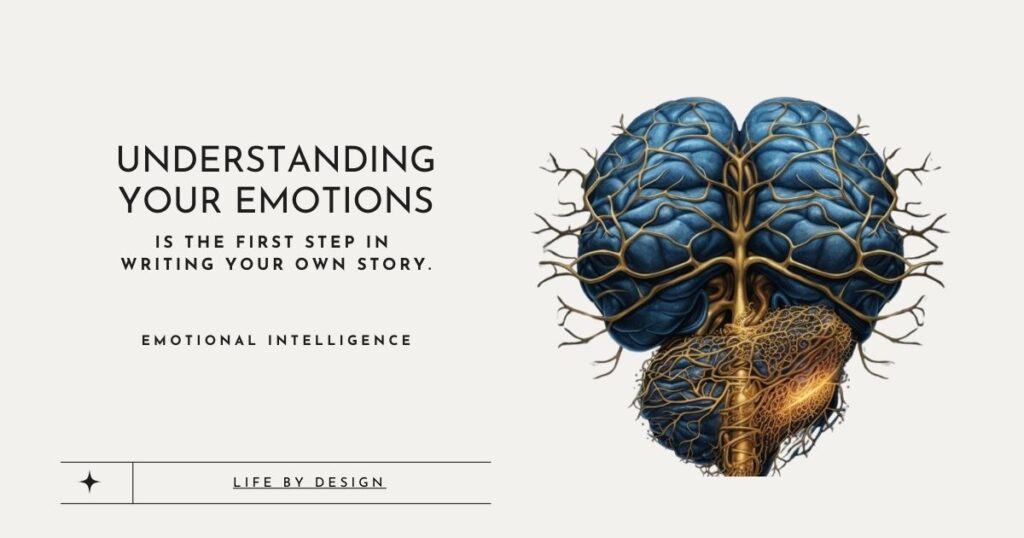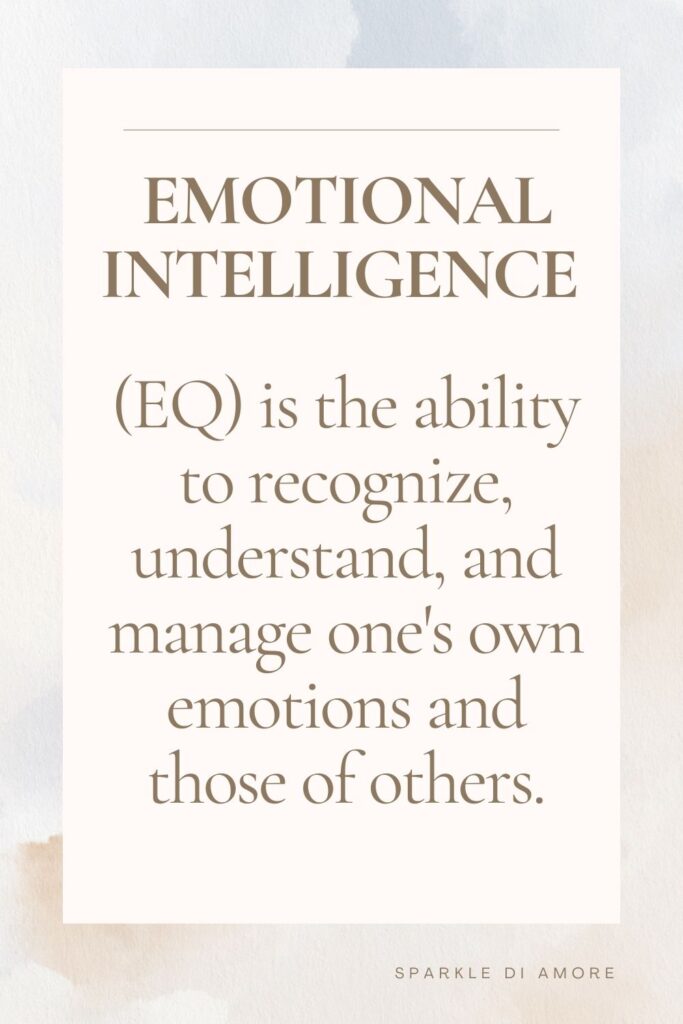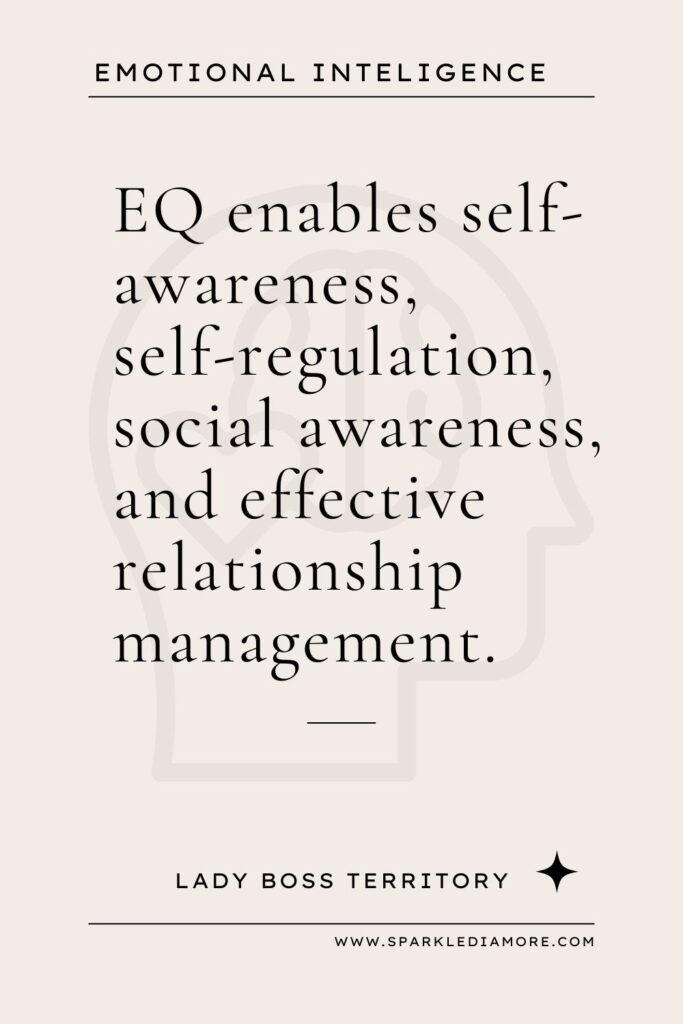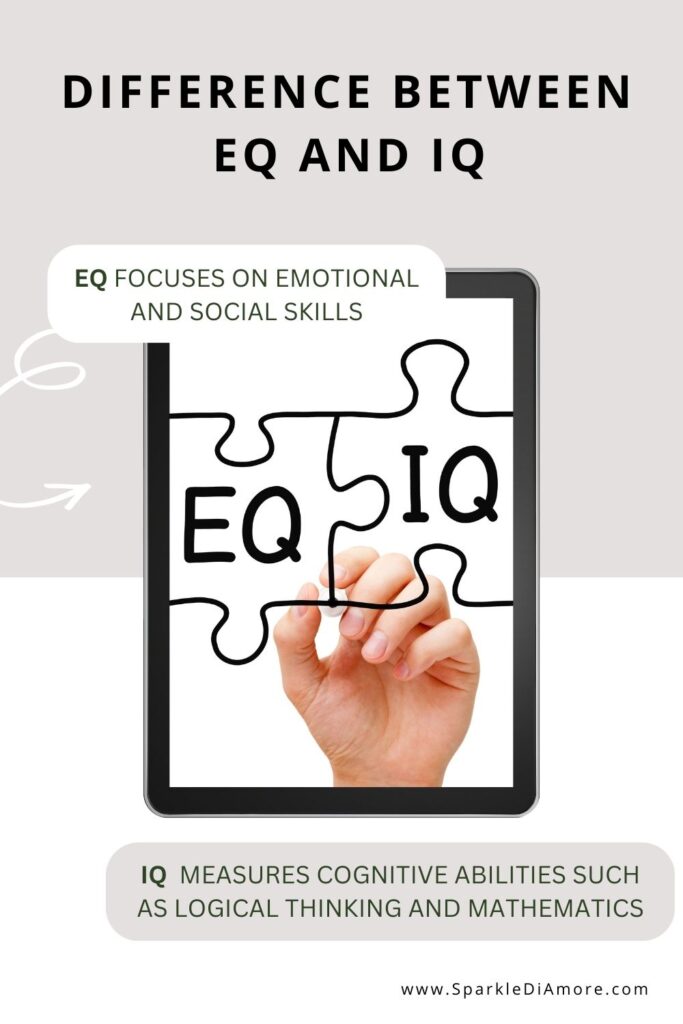
Follow the face behind the hustle here
Introspect to Emotional Intelligence
What is Emotional Intelligence?
Defining Emotional Intelligence
Emotional Intelligence (EQ) is the ability to recognize, understand, and manage one’s own emotions and those of others. It enables self-awareness, self-regulation, social awareness, and effective relationship management.
Historical Background and Evolution
The concept of Emotional Intelligence gained some attention in the 1990s through the work of psychologists Peter Salovey and John D. Mayer. It was popularized by Daniel Goleman in his book Emotional Intelligence. However, its roots can be traced back further to early theories of social Intelligence and personal competence.
Difference Between EQ and IQ
While IQ (Intelligence Quotient) measures cognitive abilities such as logical thinking and mathematics, EQ focuses on emotional and social skills. Although IQ can predict academic success, Emotional Intelligence is sometimes a better indicator of personal and professional achievement.



Importance of Emotional Intelligence
Impacting on Personal Life and Relationships
A high EQ leads to better understanding and communication, strengthening personal relations. It’s instrumental in resolving conflicts and building trust, making it a cornerstone of interpersonal dynamics.
Relevance at the WorkPlaces
In professional settings, Emotional Intelligence is key to effective leadership, teamwork, and communication. Employers value workers who manage their emotions, act well with coworkers, and seamlessly avoid workplace challenges.
Benefits to Mental Health and Well-being
Emotional Intelligence could significantly improve mental health by aiding stress management, reducing anxieties, and increasing resilience. It promotes positive outlooks and equips individuals with robust coping mechanisms.
Components of Emotional Intelligence
Self-Awareness
Understand your own emoticons, strengths, weaknesses, values, and their impact on others.
Self-Regulation
The ability to manage or redirect disruptive emotions and impulses and adapt to changing surroundings.
Social Skills
Effective management of relationships to move people in desired directions, including effective communication, conflict resolution, and collaboration.
Mastering Self-Awareness: The Basement of EQ
Understandings Self-Awareness
Identifications of Personal Emoticons
Recognize your feelings at some given moment and understand the triggers behind these emoticons.
Recognizing Emotional Triggers
Identify situations or persons that provoke emotional reactions and comprehend why these triggers have such effects on you.
Self-Reflect Techniques
Engage in filling self-reflect practices like meditations or quiet contemplations to gain deeper insights into your emoticon experiences.
Building a Self-Awareness
Journaling and Emotional Tracking
Keep a journal to record your feelings and thoughts, helping you identify patterns in your emotional responses.
Mindfulness and Meditation Practices
Regular mindfulness and meditation can heighten awareness of your emotional states and improve emotional regulation.
Seeking Feedback from Others
Requesting honest feedback from friends, family, or colleagues regarding your emotional reactions and behaviors for some insights.
Measuring Self-Awareness
Emotional Intelligence Tests
Take standardized tests designed to evaluate your level of Emotional Intelligence.
Self-Assess Tools
Use questionnaires and tools to gauge your awareness and emotional responses.
Professional Evaluations
Consult professionals like therapists or coaches for more in-depth evaluation of your EQs.
Developing Self-Regulation Skills
The Needs for Self-Regulation
Managing Stress and Anxiety
Learn techniques to control stresses and anxieties to maintain emotional balance and overall health.
Controlling Impulsive Behaviors
Develop the ability to think for acting, reducing the likelihood of regretting spontaneous reactions.
Maintaining Emotional Balance
Achieve a stable emotional state even amidst challenges and transformations.
Techniques for Self-Regulation
Cognitive Behavioral Strategies
Implement cognitive behavior techniques to alter negative thinking patterns and behavior.
Breathing and Relaxation Techniques
Practice deep breathing and relaxation exercises to calm your mind and body during stressful scenarios.
Setting Personal Boundaries
Establish clear boundaries to safeguard your emotional well-being and prevent burnout.
Overcoming Self-Regulation Challenges
Recognizing Stressors
Identify stress sources in your life and understand their impacts on your emotions and behaviors.
Developing Coping Mechanisms
Create strategies to handle stressors, such as exercises, hobbies, or speaking with friends.
Seeking Professional Help When Needed
Recognize when to seek assistance from therapists or counselors to develop better self-regulation skillsets.
Enhancing Social Skills for Improved Relationships
Importance of Communication
Active Listening’s Techniques
List attentively to truly understand the speakers, rather than waiting your turn to respond.
Constructive Feedback Methods
Provide and receive feedback in a productive, respectful manner aimed to foster growth.
Navigating Difficult Conversation
Handle the tough conversations with empathy and clarity to resolve conflicts and misunderstandings.
Building Empathy
Understanding and Sharing Feelings
Connect with others by recognizing and validating their emotions.
Empathy vs. Synthetic
Distinguish between emphatic (feeling with someone) and synthetic (feeling for someone) empathy, understanding that empathy is more effective in building connections.
Practicing Empathy in Daily Life
Engage in daily practices like putting yourself in others’ shoes, asking open-ended questions, and listening without judgment.
Fostering Collaboration and Teamwork
Importance of Team Dynamics
Recognize the role of Emotional Intelligence in creating cohesive, high-performance teams.
Conflict Resolute Strategies
Develop effective ways to resolve conflicts within teams, ensuring all voices are heard and respected.
Encouraging Inclusive Environments
Create an environment where everyone feels valued and is able to contribute.
Practical Applicate of Emotional Intelligence
Emotional Intelligence in Leadership
Effective Leadership Qualities
Leaders with high EQ exhibit empathy, effective communication, and the ability to inspire and motivate others.
Developing an Emotionally Intelligence Team
Encourage EQ developments among team members to build supportive and collaborative working environments.
Leading with Empathy and Integrity
Make a decision that considers others’ well-being while maintaining transparency and honesty.
Enhancing Personal Relationships
Builds and Maintain Trust
Cultivate trust by being constant, reliable, and honest in your interactions.
Conflict Resolutions in Romantic Relationships
Approach conflicts in romantic relationships with empathy, focus on mutual understanding, and resolve.
Strengthening Familial Bonds
Use Emotional Intelligence to deepen family relationships and resolve familial conflicts.
Emotional Intelligence in Everyday Situations
Coping with Life Changes
Apply Emotional Intelligence to adapt to changes in your personal and professional life.
Navigating Social Interactions
Use EQ skills to manage social situations effectively, whether meeting new people or engaging in group activities.
Personal Growth and Development
Continuously work on your Emotional Intelligence to become a more aware and empathetic person.
Take a look here: Daily Habits for Personal Growth: Transform Your Life One Step at a Time
Conclusion and FQAs
Summary of Key Points
Emotional Intelligence encompasses self-awareness, self-regulation, and social skills.
Higher EQ significantly contributes to personal well-being, professional success, and stronger relationships.
Developing EQ is an ongoing process involving mindfulness, self-reflection, and practice.
Overcoming Imposter Syndrome and Confidence Building
Frequently Questions Asked
What can be signs of high emotional Intelligence?
Ability to understand and manage emotions effectively
Strong relationships and effective communication skills
High levels of empathy and social awareness.
Can emotional Intelligence be taught?
Yes, through practices such as mindfulness, self-reflection, and emotional skills training.
How does emotional Intelligence affect mental health?
It helps manage stress, reduce anxieties, and foster a positive outlook, contributing to overall mental well-being.
Final Thought
Embracing Emotional Intelligence can profoundly impact your life. By consistently practicing and developing these skills, you can achieve more balanced and fulfilling existences. Remember, emotional growth is a journey, not a destination. Keep nurturing EQ for a happier, healthier life.
